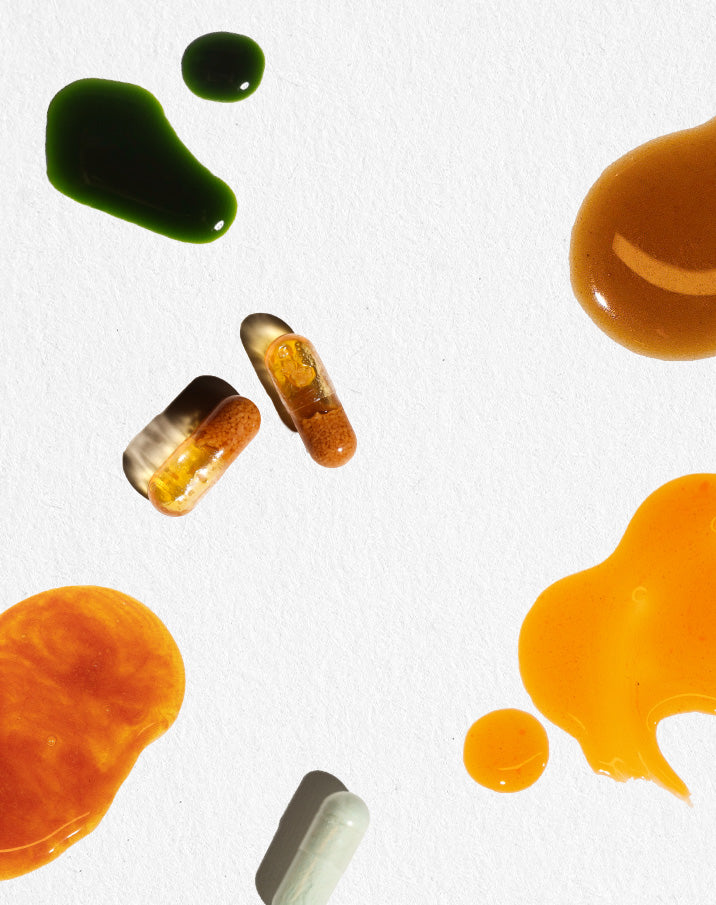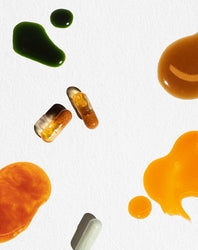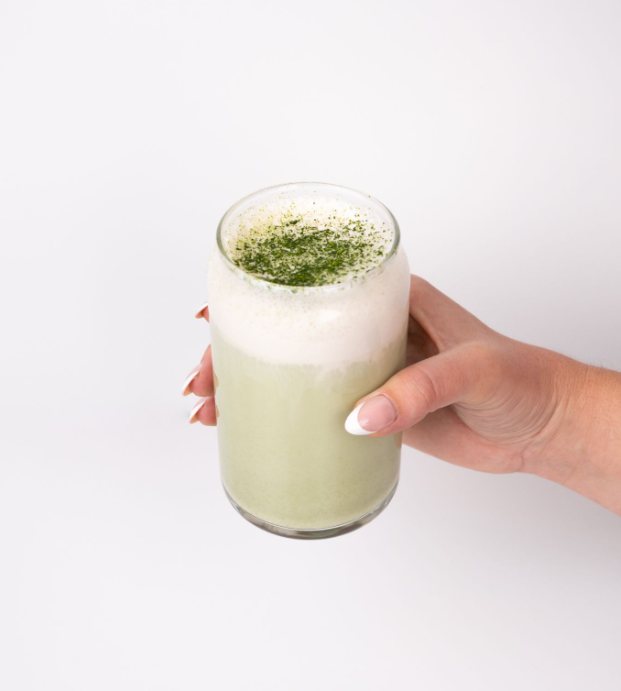
With its diverse and complex ecosystem, the colon’s home to over 400 species of bacteria. While many of these species are necessary for waste removal and digestion, others can wreak havoc on the gastrointestinal tract if left unchecked.
Fortunately, you don’t have to wait until one of these pesky microbes flares up before fine-tuning your gastrointestinal tract. That’s because regular colon cleanses and gut health supplements can help to remove harmful toxins to detoxify your body and improve your digestion.
But how do you know when to schedule a colon cleanse? In this guide, we’ll cover signs you need to cleanse your colon.
#1 You Have Stomach Pain and Digestive Problems
Stomach pain and digestive problems are two of the most tell-tale signs you need a colon cleanse. While several factors, including food poisoning and a lack of fiber, can cause gastrointestinal issues, prolonged and severe symptoms may be caused by a build-up of harmful toxins.
In addition to causing general discomfort, these harmful toxins can cause the following:
- Diarrhea
- Cramping
- Gas and bloating
- Vomiting
- Constipation
Regular colon cleansing can help eliminate these harmful toxins before they cause problems. In fact, one study determined that colon cleanses were especially effective at aiding irritable bowel syndrome.1
#2 You’ve Gained Unexpected Weight
For many people, fluctuations in weight are part of normal bodily cycles. However, if you’ve gained weight for no apparent reason or are more inclined to put on excess weight, gut microbes may be to blame.
The reason may stem from gut microbial efficiency.2 Although all digestive microbes help break down food so that the calories and nutrients may enter your bloodstream, some microbes are better at digesting food. Therefore, you may want to look for nutritious foods to cleanse your colon. The more microbes in your gut, the more calories your body intakes, which can lead to weight gain.
In addition, gut microbes can cause you to gain weight in the following ways:
Although weight gain can be attributed to a number of factors, small organisms living in your colon might be to blame. Regular and natural colon cleanses can help eliminate these inflammation-causing, hunger-inducing bacteria.
#3 You’re Feeling Fatigued Constantly
Recent studies have shown a correlation between fatigue and the prevalence of certain gut microbes.4 While more work needs to be done in this area, the data indicates that some gut microbes may contribute to all-day sleepiness.
Possible reasons for the link between fatigue and gut microbes include:
Like weight gain, fatigue may be attributed to many sources. That said, if you’re constantly fatigued for no apparent reason, it may be time for a colon cleanse to ward off fatigue-inducing microbes.
#4 You’re Feeling “Foggy” and Distracted
A common misbelief is that harmful and unhealthy gut microbes only affect you physically. While it’s true that the most immediate symptoms of harmful bacteria are physical, harmful microbes can also affect you mentally.
That’s because, as scientists are discovering, gut microbes play a prominent role in brain functioning.6 What’s more, your colon’s bacterial makeup may even play a role in brain-centered diseases such as:
- Alzheimer’s
- Autism
- Depression
- Chronic aches
While the link between gut microbes and brain functioning is yet to be fully understood, possible reasons why a connection exists include:
At the very least, harmful toxins in your colon may cause you to feel more distracted in the short term. A regular colon cleanse may be just what you need to get your mind back to normal.
#5 You’ve Been Smelling Bad
Given the nature and function of colonic microbes, it stands to reason that harmful gut microbes can influence body odor. However, this link between gut microbes and body odor has only recently gained traction.
If you’ve noticed that you’ve been smelling malodorous with a bad breath recently, harmful toxins may be to blame.
Gut bacteria have been especially linked to smells of ammonia. According to one recent study, certain gut bacteria strains have the ability to form ammonia.8 If enough of these ammonia-forming bacteria strains accumulate, you may end up smelling unpleasant.
A colon cleanse may be just what you need to smell minty fresh.
#6 You’ve Experienced Sexual Dysfunction
One of the common side effects of an accumulation of harmful colon toxins is sexual dysfunction. While this dysfunction may not manifest as an inability to have sex, it may lead to a decreased desire to engage in intercourse.
Like the link between gut bacteria and weight gain, the relationship between sexual performance and microbes hasn’t been fully understood. However, what is understood is that gut bacterial makeup does influence serotonin production, and the lack of serotonin can impact sexual energy and desire.9
#7 You’ve Been Having Bad Skin
One of the most beautiful aspects of the human body is its interconnectedness. When all bodily systems are functioning properly, the entire body usually feels wonderful. However, when one system’s acting up, the symptoms can be felt in other parts of the body.
The skin is one such organ that’s impacted greatly by harmful gut toxins.
Although studies between gut microbes and skin health are still in their nascent stages, there’s growing evidence that gut health and skin health are inextricably linked. In particular, harmful gut toxins have been linked to:
- Skin inflammation
- Acne
- Psoriasis
- Epidermal diseases
If you’ve noticed your skin’s less glamorous than usual, it may be time to cleanse your colon.
Why Colon Cleanses Are Important
Now that we’ve discussed the 7 signs you need to cleanse your colon, let’s dive into why routine colon cleanses are important.
In short, routine colon cleanses can help you in the following ways:
Put simply, routine colon cleanses can help you live a healthier lifestyle. That said, there are a few things you can do to improve your colon health before your colon cleanse. Experiencing stomach issues? Learn more about the benefits and uses of activated charcoal for stomach bugs.
In addition to eating a diet full of fiber and taking probiotics, one of the best things you can do is incorporate activated charcoal into your lifestyle. A carbon-based substance that traps harmful toxins through adsorption, using activated charcoal for gas and bloating can help alleviate the symptoms of harmful bacteria.
That said, not all activated charcoal’s the same. For the best activated charcoal on the market, try Cymbiotika Activated Charcoal.
Organic, sugar-free, and wholly plant-based, Cymbiotika Activated Charcoal is made from activated coconut charcoal and is designed to purify your digestive system so that your colon cleanse can go as smoothly as possible.
Cymbiotika: The Right Way To Cleanse
Routine colon cleanses are great ways to keep your mind and body in tip-top shape. But don’t wait until there’s a major problem to get a colon cleanse. Instead, colon cleanses are recommended if you’re experiencing one or more of the following:
- Stomach pain and indigestion
- Fatigue
- Brain fog
- Sexual dysfunction
- Bad odor
- Bad skin
- Weight gain
That said, one of the best things you can do before your colon cleanse is activate your digestive system by taking Cymbiotika Activated Charcoal.
For the best in mental, body, and gut health, there’s only Cymbiotika.
Sources:
- National Library of Medicine. Treatment of irritable bowel syndrome with a novel colonic irrigation system: a pilot study. https://pubmed.ncbi.nlm.nih.gov/27194235/
- National Library of Medicine. Role of the gut microbiota in host appetite control: bacterial growth to animal feeding behaviour. https://pubmed.ncbi.nlm.nih.gov/27616451/
- Scientific Reports. Potential role of microbiome in Chronic Fatigue Syndrome/Myalgic Encephalomyelits (CFS/ME). https://www.nature.com/articles/s41598-021-86425-6
- . National Library of Medicine. Eukaryotes in the gut microbiota in myalgic encephalomyelitis/chronic fatigue syndrome. https://www.ncbi.nlm.nih.gov/pmc/articles/PMC5784577/
- U.S. National Library of Medicine. Gut Microbes and the Brain: Paradigm Shift in Neuroscience. https://www.ncbi.nlm.nih.gov/pmc/articles/PMC4228144/
- U.S. National Library of Medicine.. Gut microbiome diversity is associated with sleep physiology in humans. https://www.ncbi.nlm.nih.gov/pmc/articles/PMC6779243/
- U.S. National Library of Medicine. Microbiota and Malodor—Etiology and Management. https://www.ncbi.nlm.nih.gov/pmc/articles/PMC7215946/
- Heathline. Could Probiotics Improve Your Sex Life? Unpacking the Gut-Sex Connection. https://www.healthline.com/health/healthy-sex/probiotics-gut-sex-life
- Harvard Health Publishing. Do gut bacteria inhibit weight loss? https://www.health.harvard.edu/staying-healthy/do-gut-bacteria-inhibit-weight-loss
- Nature. Potential role of microbiome in Chronic Fatigue Syndrome/Myalgic Encephalomyelits (CFS/ME). https://www.nature.com/articles/s41598-021-86425-6
- U.S. National Library of Medicine. Chapter 95 Microbiology of the Gastrointestinal Tract. https://www.ncbi.nlm.nih.gov/books/NBK7670/
- U.S. National Library of Medicine. Eukaryotes in the gut microbiota in myalgic encephalomyelitis/chronic fatigue syndrome. https://www.ncbi.nlm.nih.gov/pmc/articles/PMC5784577/
- National Library of Medicine. Role of the gut microbiota in host appetite control: bacterial growth to animal feeding behaviour. https://pubmed.ncbi.nlm.nih.gov/27616451/
- National Library of Medicine. Treatment of irritable bowel syndrome with a novel colonic irrigation system: a pilot study. https://pubmed.ncbi.nlm.nih.gov/27194235/







